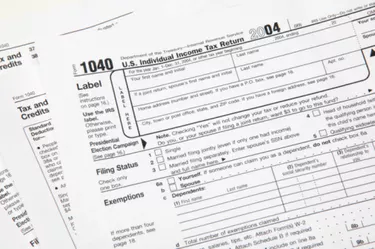
Although most income is taxed at different rates, it is generally taxable. Taxpayers who meet the requirement to file, based upon income and filing status, are usually taxed based upon the tax bracket into which their income falls. However, in certain circumstances, some categories of protected income are not taxed or are only partially taxed. Workers' compensation is in the category of income that is generally not taxed.
Definition
Video of the Day
Workers' compensation benefits are paid as a result of an occupational sickness or a work-related injury. The compensation provides payments for medical care, lost wages and other reimbursement expenses. Although plans are not the same in all jurisdictions, most workers' compensation agreements provide payments to employees but require that the recipient not sue the employer for negligence.
Video of the Day
Taxation of Workers' Compensation
Workers' compensation pay is generally considered an exception to the general filing requirements and is exempt from taxation. This exemption also applies to survivors who receive the death benefit. However, retirement plans are not included in this exemption, even if the early retirement was the result of sickness or injury.
Return to Work
If you return to work after a work-related injury and are assigned light duty by your employer, that income will be taxed as wages and should be included on your income tax return.
Exceptions
Compensation payments made via the Federal Employees Compensation Act (FECA) are generally not taxed. However, the payments that are made for up to 45 days while the compensation case is being decided are subject to federal tax. Report this compensation on line 7 of form 1040 and 1040A or line 1 of form 1040EZ. In addition, payments made under the category of sick leave while a workers' compensation case is being reviewed are also subject to tax.
Considerations
Workers' compensation benefits, along with child support payments, compensatory payments for physical injuries and adoption expenses are in a rare category of payments that don't have to be counted as income. Other income in the same general family of workers' compensation, such as proceeds from life insurance, is taxable in certain instances. Don't make assumptions about the potential tax status of other income based upon the tax-free status bestowed upon workers' compensation income.